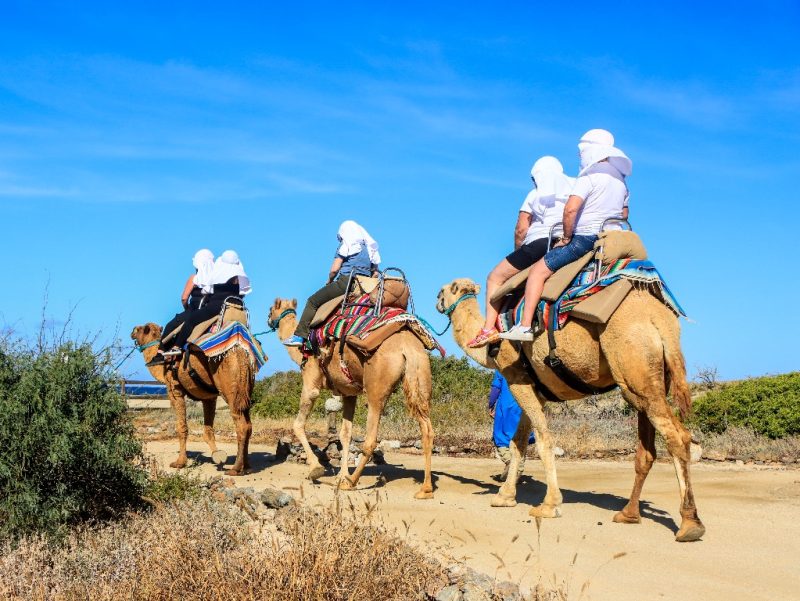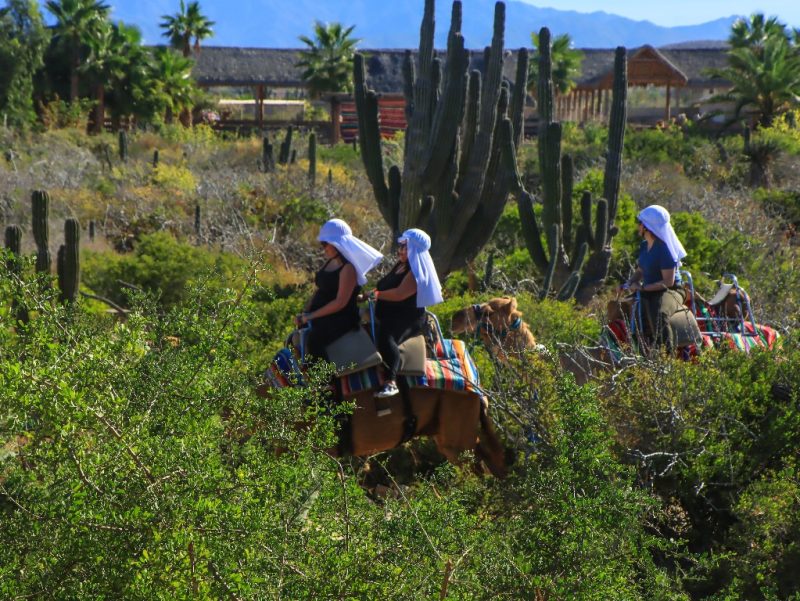Cabo Adventures offers camel treks
IAN STALKER
Juan Emilio Rodriguez carries the title of ambassador at Baja California’s Cabo Adventures.
And perhaps a Rodriguez of BajArabia description would be fitting as well.
Among experiences offered by the Los Cabos-based adventure firm are treks on camels, a mode of transportation more commonly associated with the Middle East, including Jordan, with followers of T.E. Lawrence — better known as Lawrence of Arabia — often riding animals long used to carry people over desert landscapes.
Cabo Adventures has some 35 camels, with the desert-dwellers often tethered together in groups to form camel trains that ferry tourists along a beach in a desert setting. Treks of 20 to 25 minutes cover around 500 meters.
The slow-moving camels — some of which have one hump while others have two — are led by a Cabo Adventures guide, who walks the distance.
The camels are tied together to prevent any that suddenly feel frisky from suddenly bolting to burn off excess energy.

“We are pioneers in doing really different things,” Rodriguez somewhat unnecessarily says of the excursions, which see riders provided with helmets and sport clothing — including keffiyeh-like headwear — that shields them from the often intense desert sun.
“It is the best opportunity to be at a very unique height and enjoy the scenery,” Rodriguez adds of sitting in a camel saddle.
Using animals to entertain tourists has become somewhat controversial in much of the world but Rodriguez says Cabo Adventures is proud of its treatment of its camels. Some of the mammals were obtained from an American camel sanctuary, while others ended up at Cabo Adventures after the Mexican government banned the use of animal acts in circuses, prompting those circuses to look for a home for creatures once used to entertain circus spectators.
Cabo Adventures pays for some camels, while others are turned over without any cost to them by former owners no longer wanting to care for the animals.
Camels at Cabo Adventures — which also serves as a sanctuary for other rescue animals, among them donkeys and ponies — will likely live longer than their counterparts elsewhere, Rodriguez adds.

Rodriguez says each Cabo Adventures camel has its own “logbook,” access to 24-hour vet care, and is rested at least two full days a week.
As well, riders mount their camels with ladders, rather than having them frequently kneel down as is usually the case in other parts of the world, something Rodriguez says can eventually lead to knee stress.
People weighing over 265 pounds are immediately disqualified from the treks, with Cabo Adventures actually keeping a scale on hand to verify that would-be riders don’t breach the weight limit.
Rodriguez adds that some Cabo Adventures camels have been “retired” from the treks because of their age.
He reports fossils indicate that a type of camel long ago inhabited what is now Baja California but then disappeared and camels have since become associated with North Africa and the Middle East.
And so tourists strolling the beach near Cabo Adventures’ base do a double-take when they spot a train of “ships of the desert” approaching, he continues.
“They are shocked,” Rodriguez says of the visitors’ reaction.
More information can be found at cabo-adventures.com.

















